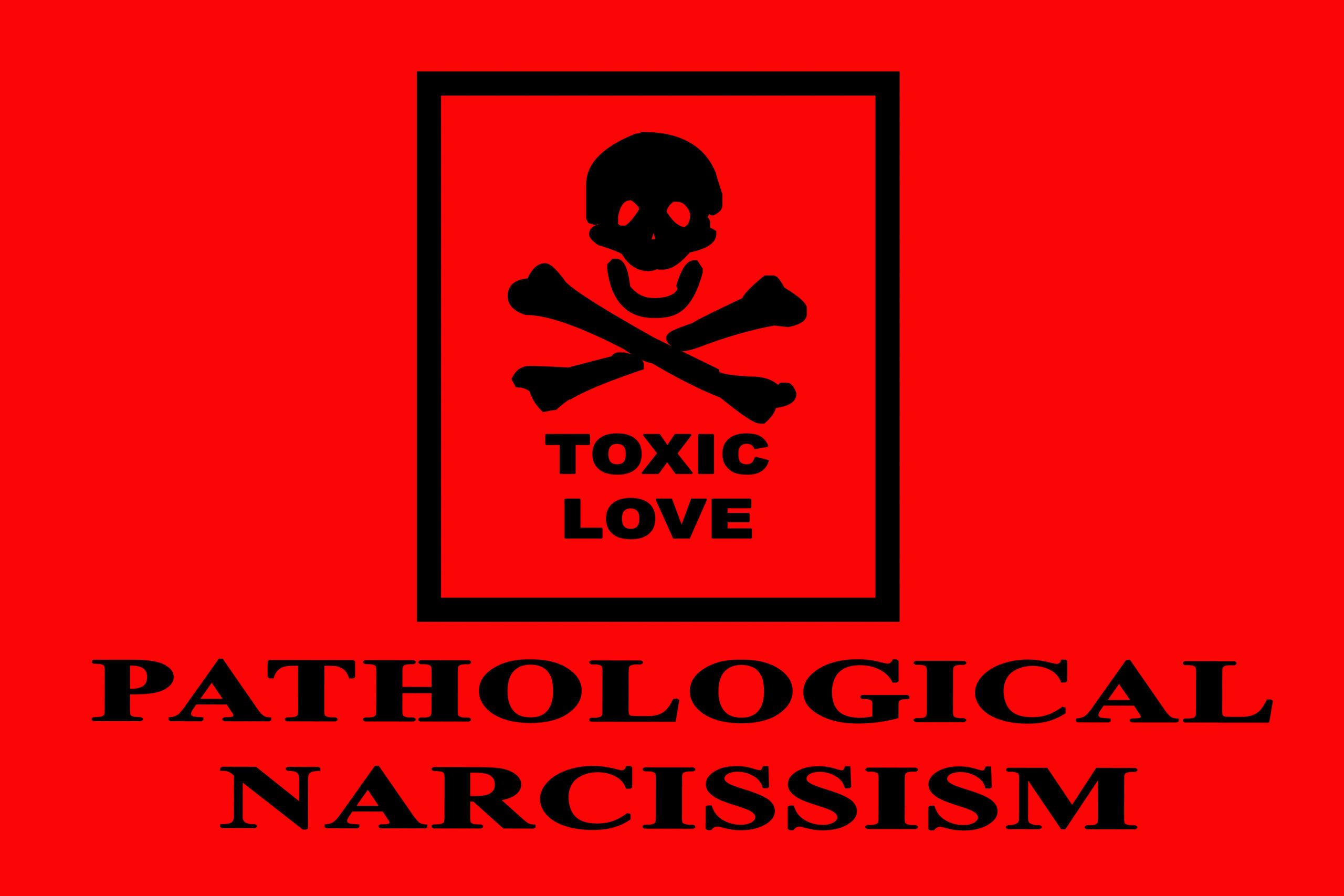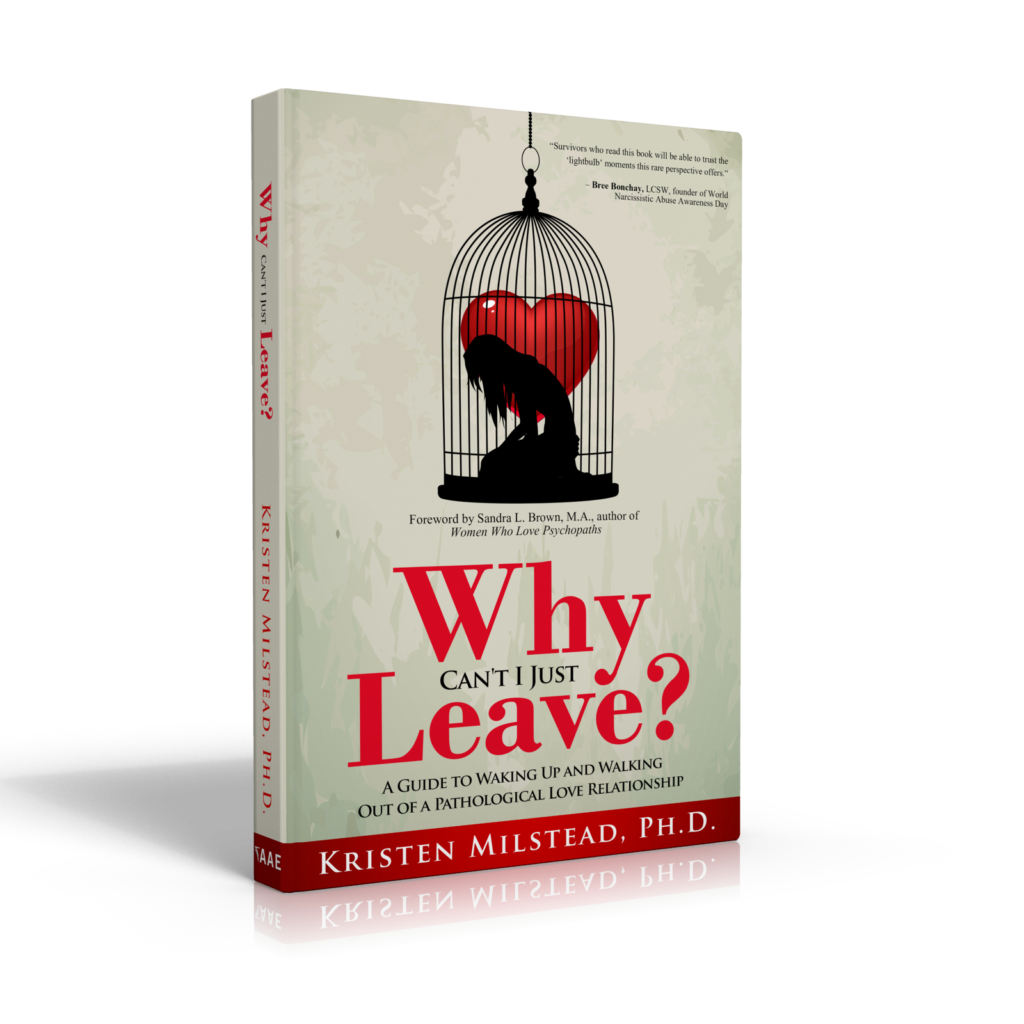In no other form of abuse does there seem to be so much concern about talking about the abuser and how it might make the abuser feel if we call out his or her behaviors and give them a label. Why does it matter so much that survivors of narcissistic abuse end up labeling people narcissists, sociopaths, and psychopaths?
Why not just refer to the abusers as “abusers?”
On Labeling People Narcissists: It’s Not About the Abuser
It was a mental health professional who first used the term “narcissistic abuse syndrome,” based on a series of symptoms she began to recognize in some of her clients and a pattern of interactions of people in those clients’ lives (Fay, 2004).
The labels are not meaningless. Narcissistic abuse is a very specific form of abuse, and it’s impossible to talk about without mentioning particular diagnoses and how they may apply to specific people in the victim’s lives to explain their pattern of behavior.
This, however, is necessary but incidental.
It’s not about the abuser. The very nature of the abuse demands its own name.
Using these labels can save lives.
1. Because of its nature, narcissistic abuse is hidden.
Much of narcissistic abuse is covert. Its hidden nature makes it difficult to even recognize, much less point out and explain.
It works covertly through a series of exploitive tactics that result in the victim willingly putting the abuser’s well-being above his or her own by making the victim believe that the abuser has his or her own best interest in mind and a relationship is mutually beneficial. The tactics perpetrated by the abusers in these situations work by eroding the victim’s identify, self-autonomy, and judgment until the partner is conditioned to take on the perspective of the abuser.
This stealth form of abuse can at first remain hidden to the victim. Even after the victim becomes aware that something is wrong, using the same tactics that enabled the abuser to hide the fact that the exploitation was occurring, the abuser continues to manipulate the victim into believing the abuse is not actually abusive, that it is deserved, or that the victim is to blame for what has taken place.
Victims of this type of abuse are psychologically shell-shocked and unable to understand what is happening to them beyond the fact that something is wrong, without the right tools to put it in perspective.
2. Its hidden nature is a unique characteristic of this type of abuse.
Although narcissistic abusers may also engage in more traditional forms of emotional abuse and even other types of abuse such as physical abuse, this grooming and “conditioning” of the victim is unique to narcissistic abuse and in fact its very essence.
While abusers of other types may gain dominance by physical force or emotionally tearing their partners down, narcissistic abusers gain dominance by mentally controlling the victims in such a way that the victims bond so strongly to them that they will put themselves in danger or allow themselves to become physically or psychologically ill in order to allow the abuser to extract resources from victims, such as money, attention, sex, love, status, or all of the above.
Other labels–more traditional labels for other types of abuse will not suffice to explain what happens to victims in these relationships.
3. The dominance and control by the abuser in the relationship are established and maintained through the deception of the true character of the perpetrator.
In other words, abuse is hidden from the victim because the true character of the abuser, including his or her motives, is kept hidden from the victim.
Narcissistic abuse follows a pattern in which the perpetrators initially love-bomb their partners, creating a situation in which it is difficult for the partner to resist because the narcissist intentionally fakes qualities, likes, dislikes, and even past experiences that mirror and complement the victim’s.
It is not possible to talk about narcissistic abuse without also talking about its perpetrator so that it can be brought out of the shadows in which it exists. Otherwise, a gap in the explanation would help keep the abuse hidden.
4. The purpose of using the label is not to define individual perpetrators but to name the abuse and help survivors.
The purpose of writing and reading books about narcissistic abuse is not to diagnose narcissists. It is to assist survivors. Yet, because this unique form of abuse exists and has the effects that it does because of the unique traits of the perpetrators, one cannot describe the abuse without also describing the perpetrators.
Most narcissists never seek treatment because they do not believe anything is wrong with them by definition. This means that they are unlikely ever to be diagnosed in the traditional sense. This means that their partners will likely never receive any explanation for what is happening to them as a result of their abuser going to a mental health professional.
As I once heard someone say as an analogy, we don’t need a court of law to tell us when we have been a victim of a crime. The purpose of the court is to determine whether there is enough evidence to convict someone or award damages.
Perhaps we should think about labels for narcissists, sociopaths, and psychopaths in the same way. When the combined pattern of behavior of our toxic partner fits that of narcissistic abuse, we do not need the validation of those who haven’t experienced it.
The damage to victims follows a recognizable documented pattern that has been named and can then be identified as meeting criteria for narcissistic abuse by the person who perpetrates it.
5. Being able to name and define the abuse allows survivors to become aware of what they are experiencing as not normal and help to raise awareness of this type of abuse.
Using terms such as “narcissist,” “sociopath,” and “psychopath” responsibly as ways to discuss people with patterns of harmful behavior helps victims to recognize that what they are experiencing is abuse.
As victims realize there is a well-established body of knowledge on this type of systematic abuse, they also begin to realize that the abuse was not their fault, that there was nothing they could have done to change the outcome of the relationship, and that the world can make sense once again when they have the language to describe what they have been through.
It ultimately doesn’t really matter how we label narcissists when they are not the beneficiaries of that label in the literature on narcissistic abuse. The discussion about labeling is merely a semantic discussion. A toxic person is a toxic person.
Using these particular terms can be what results in victims realizing that they are not alone and finding the information that they need in order to overcome the abusive situation.
Talking About the Abuse as Opposed to the Label
If you’re in one of these relationships or are a survivor, you may have found it tempting to run to your partner or to others to tell them what you’ve learned about your partner.
There are many reasons why it’s not a good idea.
Telling your partner is unlikely to get any kind of a reaction that you will feel good about. You are likely to receive either anger or denial. Even worse, the longer term effects is that you may give your partner more ammunition if he or she looks up what the terms mean and uses them more effectively to hide his or her behavior. Or perhaps they may start to use it in a smear against you.
If you try to warn other people, because others will likely have just as hard a time as you as believing people like this exist and are under just as much of the narcissist’s spell as you were, you will likely only come off as unhinged.
The labels are not for the narcissists or sociopaths themselves, they are for us to understand the situations we experienced.
I, therefore, recommend using them in ways that will help and not hurt you, such as educating yourself and reclaiming your narrative.
Source
Fay, M. (2004, July 17). “Narcissism Victim Syndrome, A New Diagnosis?.” Medical News Today. Retrieved from
https://www.medicalnewstoday.com/articles/10872.php.






6 Comments
Kristen Milstead
Hello, I hope you are well! Thank you for your comments. I understand completely about taking a break from thinking about narc abuse. I did as well and my perspective on it has changed because I am at a different point in recovering from what happened, and I feel even more determined now to help other people get away from people like our ex-partners. I don’t think of myself as a “victim” in the traditional definition of the word, and yet we were certainly victimized so it seems the appropriate word to use in a sentence sometimes, for lack of a better term. Yet I love the term you used, “person of value.” I may use that someday and will absolutely credit you. You bring up thinking that you looked unhinged. It’s horrible. Such is the nature of narcissistic abuse, where they look normal because they have been unaffected emotionally and our lives have been torn apart in every way possible and we don’t understand why or how, and as we struggle to even just get our minds back, we appear to have “lost it.” But you know that wasn’t true, and your readers do as well. Maybe all of that writing helped you sort out what happened and heal as quickly as you did. Your writing was always inspiriting to me. I hope things are going better for you these days. -Kristen
despair2deliverance
Very good article, Kristen. I found I had to take a considerable amount of time off from writing and even thinking about narc abuse so I could begin the healing process and return to a point where I feel I can trust my own judgment again. I know that may sound a bit extreme. That’s because it is. Now I’m ready to come back around and rethink narcissism with a refreshed perspective.
I think you’ve hit on some great points here, particularly where you’ve identified the urge to “warn” others about your discoveries. I think now I looked unhinged, and when I go back and read what I’ve written, I can taste the layers of hurt, anger, and devastation. Building an understanding of what happened and what to look for in future partners is essential, but I’ve also found that using a “Pontius Pilate” approach to the past is helpful. You’re also right to point out that they’re never really finished with you. In my case, I have gone black on her. I’ve also replaced narc abuse “victim” with “target of value,” because that’s really what we’re talking about. A target presents some kind of value, and it’s all about feeding their ego.
Lisa
I always feel guilty labeling my partner as being narcissistic let alone anything else.
Kathleen
This is really excellent! It’s something I’ve tried to explain or have noodled over and you’ve explained it very well! Keep spreading tthe news!
Lindsay
Great article! Thank you so much.
Kris
Hi Kristen,
Thank you for this!
I think this is an excellent post and very appropriate for me at the moment. Labels were an immense help for me in framing my experience.I am in therapy as part of my recovery and I was reluctant to mention these labels to my therapist as regards my abuser. Even though I had spent a little over three months in constant research and speaking to other survivors, I felt that my self-diagnosing my abuser would be deflected by a therapist.
Lucky for me, I found a very good one who listened to everything I had to say. He concurs with me that what I went through was textbook narcissistic abuse. I was also lucky that he praised my research as being pro-active and a great sign of somebody who wanted to get better.